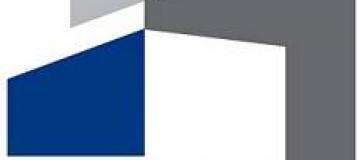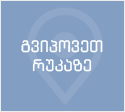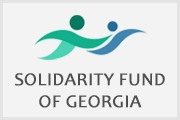Announcement by the “State Construction Company”, Ltd
The report about the coastal protection works undertaken on km117-km119 section of the Senaki-Poti-Sarpi international motor road shown on Sunday, May 29, in the TV-programme "Diverse Accents" on the broadcasting company Rustavi 2 was completely biased. The programme host addressed the Ministry of Regional Development and Infrastructure of Georgia for commentary, however, failed to provide a list of issues of their own interest and eventually compiled a one-sided report.
Given that the topic was incorrectly reported, the State Construction Company deems it necessary to afford a possibility to the Rustavi 2 viewers and other interested parties to view the actual condition of the works.
According to the N1965 resolution of the Government of Georgia passed on 16 December, 2013, the "State Construction Company", Ltd. was tasked to implement civil works on km117-km119 (Kvariati-Sarpi) section of Senaki-Poti-Sarpi international motor road (across the coastline), as well as to rehabilitate and reinforce the cliff and safeguard against stonefall. This section of the road was destroyed in the beginning of December, 2013 when natural disaster occurred on the Black Sea coast and the storm measured 6.
This road is not merely the only road connecting Georgia to Turkey in winter, but is also the shortest route for the cars travelling through Turkey from Europe to the South Caucasus or Asia. There are on average 15,000 cars passing this road a day, transporting foodstuffs and other produce. A fiber-optic cable connecting to Europe, a gas pipeline and other communications all pass through this road.
The storm posed a threat of closing off this significant artery and completely banishing this section of the road. Additionally, the population in its vicinity was also endangered. Correspondingly, road rehabilitation and coastal protection works commenced immediately in a force majeure situation, in parallel to drafting the project, as per the N1965 resolution of the Government of Georgia passed on 16 December, 2013. Additionally, in order to carry out necessary works of state and civil significance unhindered and in a limited timeframe, we were allowed to hire a sub-contractor through simplified procurement process as formulated in the articles 2 and 3 of the resolution.
Damage of such a magnitude had never occurred on the coastline before. Other than that, the most complex and significant problems related to coastal protection of the Black Sea had been postponed and avoided throughout decades and correspondingly, the country was facing the challenge without proper experience in coastal protection activities.
The project of coastal protection on Sarpi was provided to us in its initial form by "Napirdatsva", Ltd. [Coastal Protection] on 30 April, 2014, however, during the implementation of civil works, the document underwent a number of changes. The changes were necessitated by a variety of reasons.
Kalendere Kontskhi section is the most complicated in Black Sea water area, since the formation of the strongest waves takes place here. Following the consultations with project drafting organizations, in order to limit the height of wave formation (which at this place was above 10.5 meters) and to halt the process of further destruction of the affected motor road section, 175 pieces of 5-tonne tetrapods were placed alongside the road. This in itself was a temporary effort that could not have worked as a complete coastal protective structure.
According to the task assigned by the Government of Georgia, the goal of the project was exactly to build a coast protective structure - project design and construction of a stone floodwall. Preparing a project design for coastal protection is inconceivable without first studying the seabed. During high tide, and especially the high tide in spring, undertaking such a study is practically impossible.
Since time was of essence, the existing condition could not have been allowed to further deteriorate. Up until the end of March, before we had the opportunity to undertake a bathymetric study of the seabed, we were forced to use the data from the previous year, and we did so with extra caution, because after strong storms, the seabed tends to always alter.
The research conducted prior to project design demonstrated that in order to limit the influence of the waves, it was necessary to build a stone floodwall, where boulders of 0.4 m to 1.65 m in diameter and 2.65 kg/cm3 density were to be used. Finding the boulders on the territory of Adjara to meet these parameters proved to be a very complicated task.
The local private quarries were incapable of providing the construction with the boulders of necessary size and density due to incoherent operation, while transporting the material from other regions was significantly increasing the total value of the project. The most appropriate choice was to open new quarries, which was allowed by the government.
After this, we were facing yet another challenge - there were no specialists in Georgia who could have conducted necessary explosions to mine the boulders of proper size. General Building offered us to bring such specialists from abroad. The same company took charge of inviting specialists qualified in building coastal protection structures from Turkey.
The first contract with General Building was signed 14 March, 2014. At that time, project design documentation was nonexistent, so our hands were tied in terms of commencing electronic procurement procedure. At the same time, we did not have the luxury to wait. It has to be emphasized here that the subsequent electronic procurements announced by us within the framework of this project was awarded to General Building, which clearly indicates that the company is highly qualified.
If electronic procurement allows the total value of the works to be decreased by 15-20%, as was mentioned in your programme, our company managed to implement the works 16-18% cheaper against the project design cost, which is duly confirmed by the expert opinions of the LEPL Levan Samkharauli National Forensics Bureau. The resources saved here, allowed us to tackle some of the other problems, for instance, to widen the road by 5 meters, to make it a three-lane road, which is sure to ease the passage of cars in this complicated section. Accordingly, to probe into this matter for finding instances of corruption or any sort of illegal activity is uncalled for, to say the least.
In addition to the rehabilitation of the surrounding area of Kalendere Kontskhi, within the limits of km117-km119 section of Senaki-Poti-Sarpi international motor road, it was necessary to: arrange a floodwall protecting the customs checkpoint, as well as reinforcing the Sarpi beach; construction of two new wave-breaking walls and widening the road in their proximity to 5 meters; rehabilitation of a 110-meter-long overpass; installation of stonefall preventive net on a cliff alongside the 932-meter-long section of the road.
The majority of these projects have already been completed. "State Construction Company", Ltd. implemented all the activities with high quality, in maximally short timeframes, in complicated weather conditions and tough work environment.
Since we were unable to state our position in your last programme, we hereby demand to be afforded such an opportunity in your next one.
We hope that you, as an author of a programme called "Diverse Accents" would be interested in shedding the proper light on the topic at hand.



